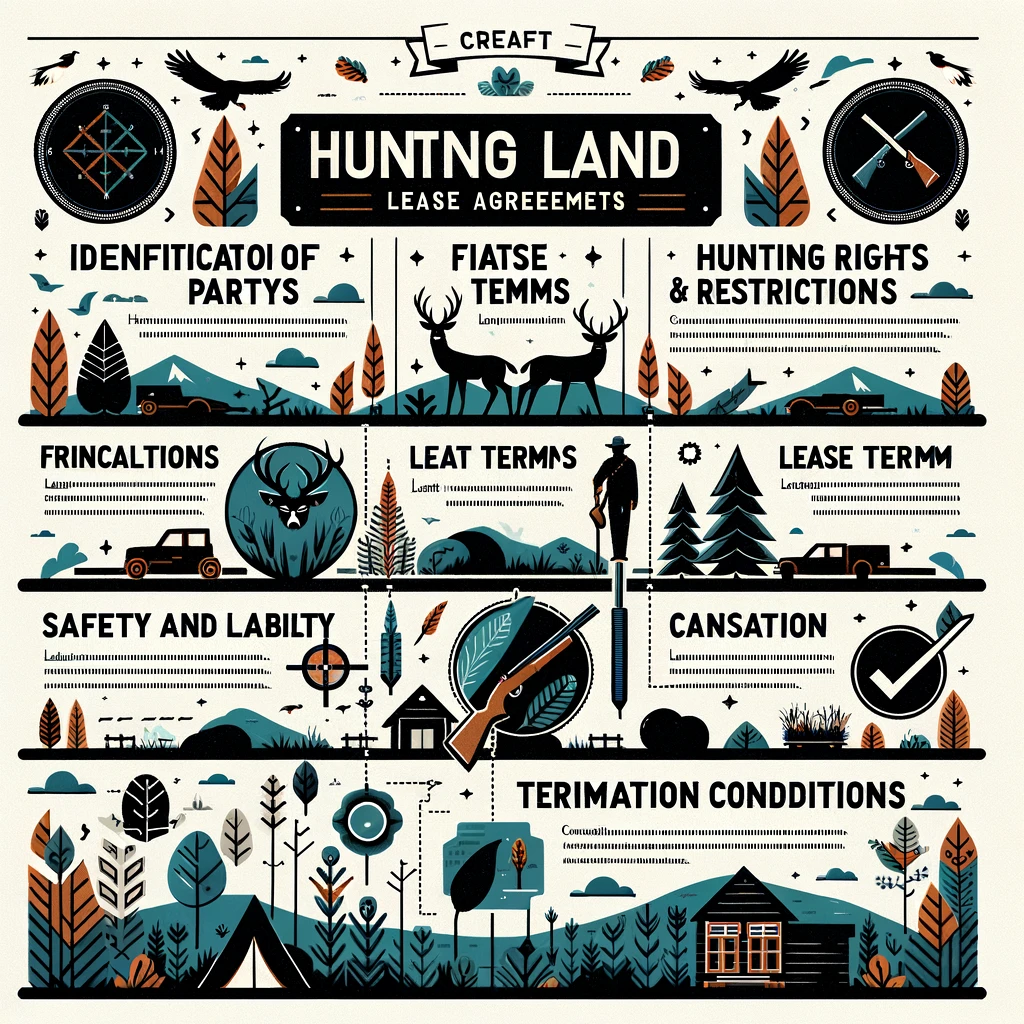Navigating Hunting Land Lease Agreements: A Comprehensive Guide for Landowners and Hunters
In the vast and varied landscapes that make up the hunting grounds of the United States, hunting land lease agreements serve as essential tools for managing the relationship between landowners and hunters. These agreements not only ensure the conservation of wildlife and habitats but also provide a framework for respecting property rights and ensuring safety. This comprehensive guide delves into the intricacies of crafting a hunting land lease agreement, highlighting best practices, legal considerations, and valuable resources.

Understanding Hunting Land Lease Agreements
A hunting land lease agreement is a legally binding contract between a landowner and a hunter or a group of hunters, granting them the right to hunt on the specified land for a certain period. These agreements can range from simple verbal agreements to detailed written contracts outlining specific terms and conditions.
Key Components of an Effective Agreement
Identification of Parties: Full names and contact information of the landowner and the lessee(s).
Description of Leased Land: Clear description of the property boundaries and any areas excluded from the lease.
Lease Term: Start and end dates of the lease period.
Financial Terms: Lease fee, payment schedule, and any additional charges (e.g., for game management or habitat improvement efforts).
Hunting Rights and Restrictions: Types of game that can be hunted, hunting methods allowed, and any restrictions imposed by the landowner.
Safety and Liability: Safety requirements, liability waivers, and indemnification clauses to protect both parties.
Conservation and Land Management: Provisions for habitat conservation, game management practices, and any land use restrictions.
Termination Conditions: Conditions under which the lease can be terminated early by either party.
Legal Considerations and Compliance
Ensuring that hunting land lease agreements comply with local, state, and federal laws is paramount. This includes understanding hunting regulations, liability laws, and insurance requirements.
Regulatory Compliance: Familiarize yourself with hunting regulations and seasons as determined by the state's wildlife agency, such as the U.S. Fish and Wildlife Service or specific state departments like the California Department of Fish and Wildlife.
Liability Insurance: Both landowners and hunters should consider liability insurance coverage to protect against potential accidents. Information on hunting liability insurance can often be found through state extension services or agricultural organizations.
Crafting Your Agreement: Best Practices
Seek Legal Advice: Consulting with a legal professional experienced in real estate or environmental law can help ensure your agreement is comprehensive and compliant with all relevant laws.
Use Clear, Concise Language: Avoid legal jargon where possible. Clear language helps ensure all parties understand the terms and conditions.
Customize Your Agreement: While templates can serve as a starting point, tailor your agreement to fit the specific circumstances and needs of your land and the hunting activities being leased.

Create & Review Your Contracts 10x Quality and Ease
Lawyer-level AI handles all your contract needs, with real lawyers providing safeguarding support

Enhancing Landowner-Hunter Relations
Open Communication: Encourage open and ongoing communication between landowners and hunters to address any concerns or issues that may arise during the lease term.
Feedback and Reviews: At the end of each lease term, solicit feedback from both parties. This can help improve the lease agreement and the hunting experience in future seasons.
Conclusion
A well-crafted hunting land lease agreement serves as a cornerstone for a successful and respectful partnership between landowners and hunters. By paying careful attention to the details of the agreement and ensuring compliance with legal requirements, both parties can enjoy a mutually beneficial arrangement that promotes conservation, safety, and the shared enjoyment of the great outdoors.
For landowners and hunters looking to explore further, authoritative resources such as Wikipedia for general hunting knowledge, state wildlife agency websites for regulatory information, and agricultural extension programs for land management practices can provide valuable insights.
Remember, the key to a successful hunting land lease lies in clear terms, legal compliance, and open communication, ensuring that the natural beauty and wildlife heritage of the land are preserved for generations to come.

